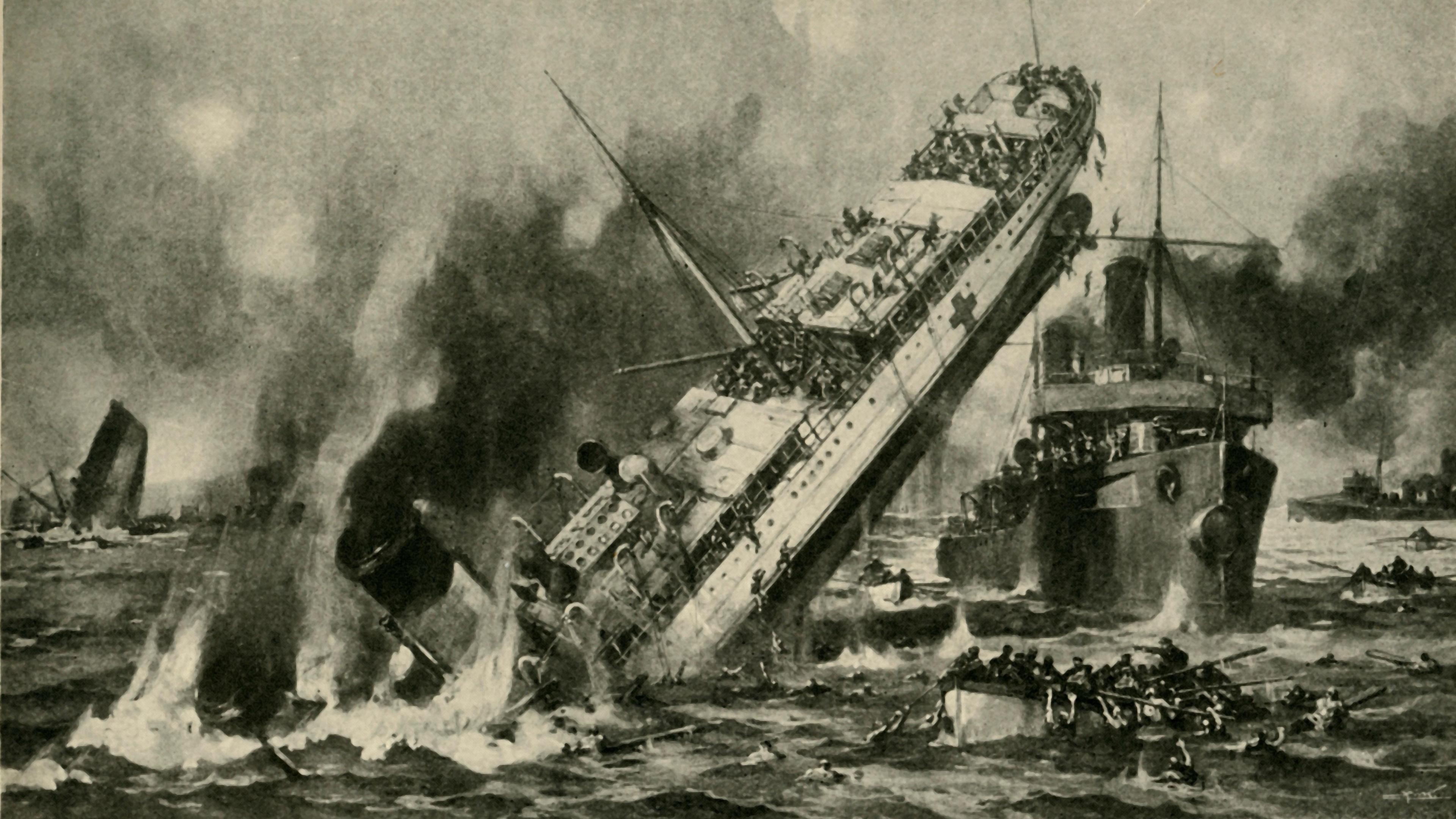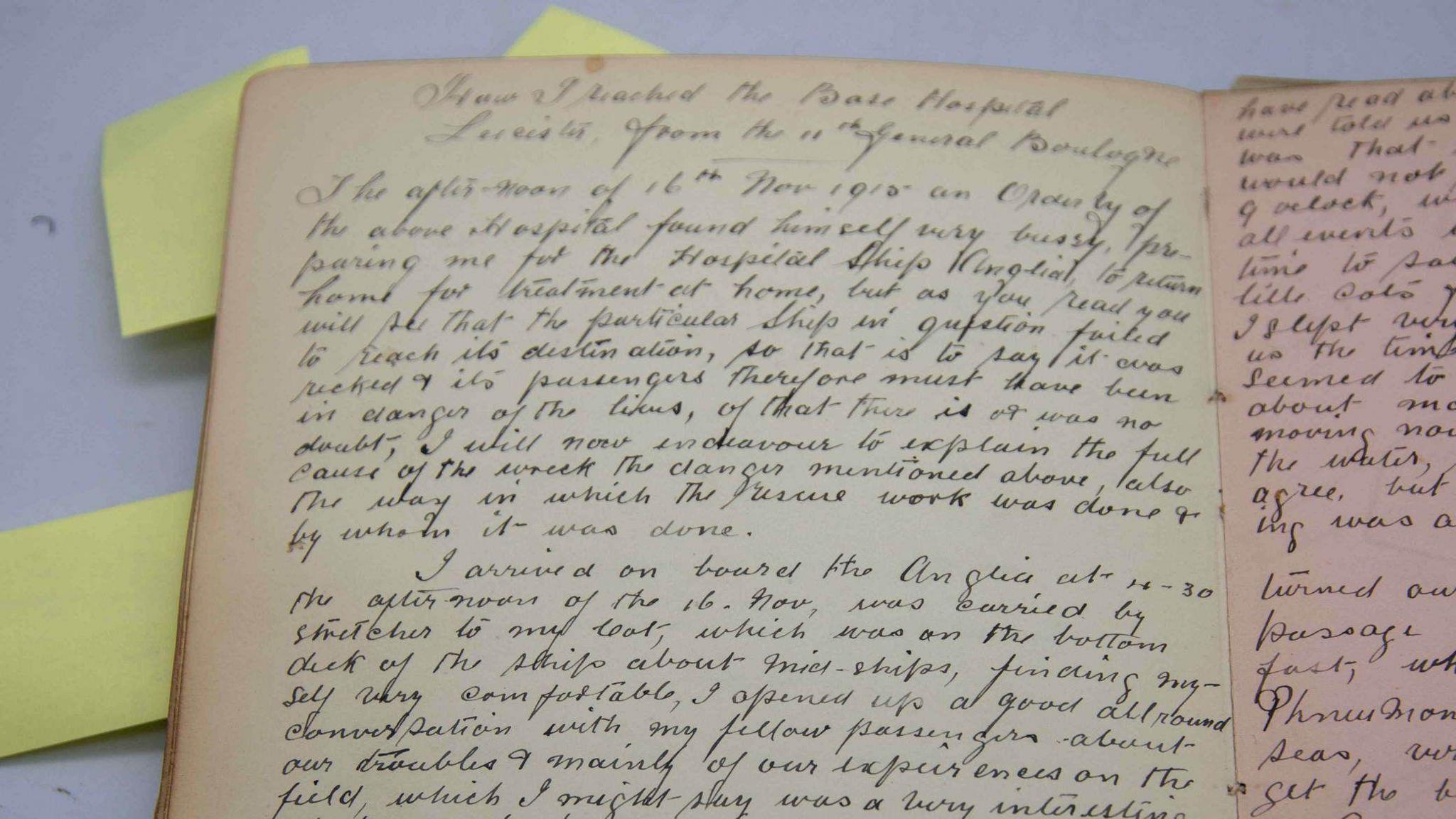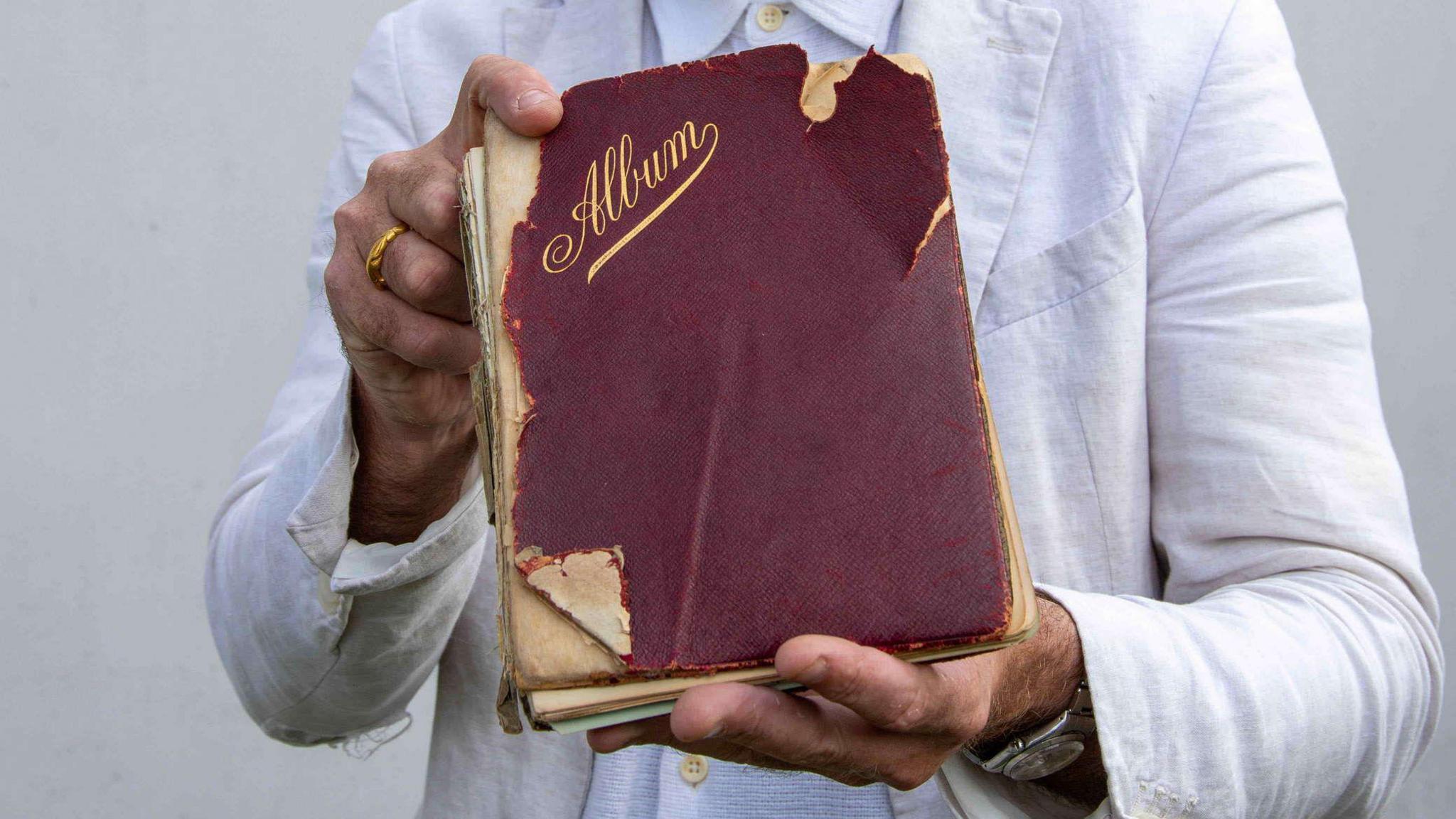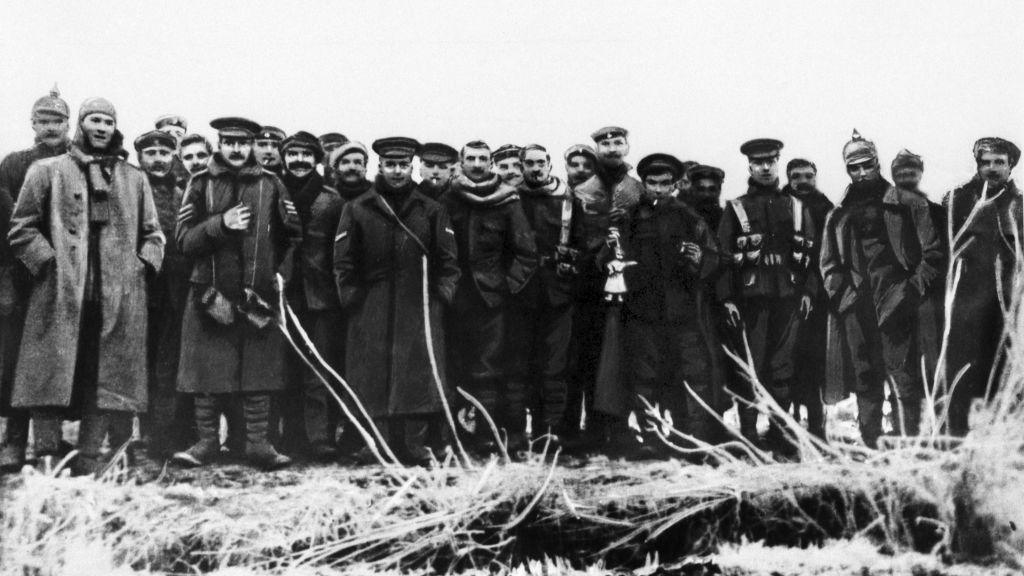'My escape from the sinking world war hospital ship'

The HMHS Anglia sank in the English Channel as it carried wounded soldiers from Calais to Dover in 1915.
- Published
"Well, lads, good old Dover is well in sight".
One wounded soldier aboard HMHS Anglia remembered those words well, spoken by a nurse helping to care for him and 390 injured comrades on their way home from war.
The men started to joyfully sing.
But on its approach, the hospital ship struck a German U-boat mine.
HMHS Anglia would never reach its destination, and its wreckage was later declared an official war grave.
The wounded soldier, referred to as C. Gordon, of the 9th Battalion of King's Royal Rifle Corps (KKR), wrote his story of survival in an album of stories collated by another nurse, who had worked across Derby and Leicester during World War One.

C. Gordon was among about 250 men who survived
Mr Gordon penned on 17 November 1915, the boat set off from the harbour at Calais on a "swift passage" home.
He recalled: "At about 12:30, an orderly came down to our ward.
"'[She said] Well, lads, good old Dover is well in sight', so we started to sing.
"'Bang'. What is that? 'Bang', Submarine?' What is it.
"Come out, come out quick, come, the ship is sinking.
"Oh, the rush I shall never forget, all to the stairs in our sleeping quilts, no time to dress.
"I was knocked down the steps twice owing to my being so weak," Mr Gordon wrote.

Mr Gordon's account was one of many saved in an album by a volunteer nurse who encouraged the wounded to contribute
It was the injured soldier's first time out of bed for 16 days.
He continued: "All the lifeboats were full of men, the men from below.
"No one seemed to give any instructions. No one seemed to know what to do.
"The ship's crew were not to be seen anywhere.
"The men in the lifeboats didn't know how to lower the boats."
Album of memories
The boat sank in 15 minutes, but despite his weak condition, Mr Gordon managed to swim to safety and was taken to Leicester Base Hospital.
His account was one of several collected by Maude Alice Lineham, a teacher before becoming a voluntary aid detachment nurse during the war.
While she worked across Derby and Leicester during the 1914-18 conflict, she encouraged soldiers to contribute.
Some wrote of pain and sorrow, while others wrote of gratitude and peace - among them, a first-hand account of a Christmas Day football match with the enemy.
Their memories were saved in an album, which was later believed to have been found during a professional house clearance.
On Wednesday, the album sold at auction for £3,400 to a buyer in Canada.
Get in touch
Tell us which stories we should cover in Derby
Follow BBC Derby on Facebook, external, on X, external, or on Instagram, external. Send your story ideas to eastmidsnews@bbc.co.uk, external or via WhatsApp, external on 0808 100 2210.
Related topics
- Published3 November 2024
